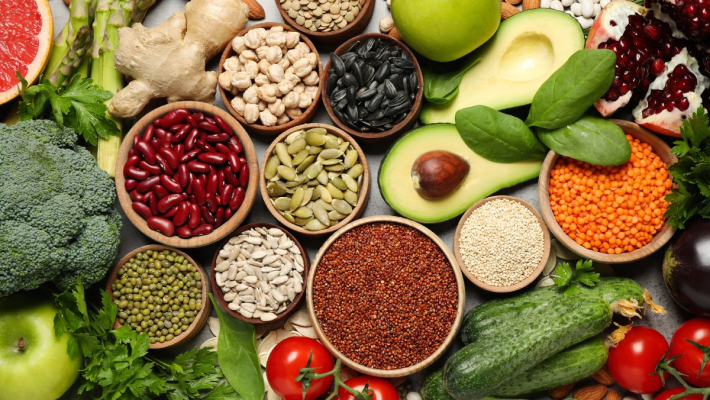Paprika
- €4,95
Compact Paprika Seeds for Balcony and GreenhouseDiscover the versatility of paprika seeds from the Capsicum annuum Yolo Wonder variety, perfect for container gardening peppers and compact pepper plants. This sweet pepper variety produces fairly square...
- €5,95
Vibrant Paprika Seeds Mix for Greenhouse CultivationDiscover the paprika seeds mix featuring five distinct paprika varieties: Orange Horizon, Yellow Sunbright, Purple Bell, White Bell, and Yolo Wonder. This colorful paprika seeds collection offers a delightful...
- €6,95
Early Maturing Paprika Solero F1 for GardenersThe Paprika Solero F1 is an exceptional early maturing paprika variety prized for its fast-growing nature and robust growth. This Capsicum annuum hybrid produces sturdy green fruits that quickly...
- €4,95
Productive Pepperone Goccia D'Oro Sweet Yellow PepperThe Pepperone Goccia D'Oro (Capsicum annuum L.) is a highly productive pepper plant known for its early harvest and vibrant golden-yellow fruits. This sweet yellow pepper variety features a...
- €4,95
Robust Pointed Pepper for Preserving and GrillingDiscover the vibrant pointed pepper with the Ora Long Yellow variety, a distinguished Capsicum annuum cultivar known for its vigorous growth and large fruit production. This sweet pepper variety...
- €4,95
Sweet Orange Pointed Pepper Seeds for StuffingDiscover the vibrant flavor and versatility of pointed pepper seeds from the Capsicum annuum Timia Orange variety. These sweet pointed peppers feature bright orange fruits that grow up to...
- €4,95
Vibrant long peppers from red horn pepper seeds These red horn pepper seeds produce an eye-catching bull horn pepper variety with extra-long, pointed fruits that can reach up to 25 cm. Belonging to Capsicum annuum,...
- €6,95
Colorful snack bell pepper seeds for containersBring vibrant color and crunch to your kitchen garden with our snack bell pepper seeds mixed colors. This snack bell pepper seeds mix combines compact, small bell pepper varieties...
- €6,95
Delicious Mini Sweet Paprika for Container GardeningDiscover the joys of growing snacking red paprika at home with these Capsicum annuum seeds. Perfect for balcony vegetable plants and container gardening vegetables, this mini sweet paprika variety...
- €4,95
Flavorful Spanish Cayenne Pepper Seeds for GardensDiscover the vibrant taste of Spanish Cayenne Pepper Seeds, a long slim variety of Capsicum annuum known for its sharp, spicy flavor. These cayenne chili pepper seeds produce fiery...
- €4,95
Early Maturing Sweet Italian Bell Pepper SeedsDiscover the vibrant flavor and impressive productivity of the Sweet Italian Bell Pepper, a pointed sweet pepper variety cherished for its medium-sized horn-shaped fruits. This Capsicum annuum L. cultivar...
- €4,95
Early maturing Italian long pointed pepper varietyBring classic Italian flavor to your garden with sweet pepper of Bergamo seeds. Also known as Sigaretta di Bergamo, this heirloom Italian pepper variety of Capsicum annuum is prized...
- €5,95
Vibrant sweet pepper seeds mix for gardenersCreate a colourful vegetable patch with this sweet pepper seeds mix, a carefully selected collection of five paprika varieties in orange, yellow, purple, white and classic green-red tones. This...
- €5,95
Compact patio sweet pepper seeds for containersBring vibrant colour to small spaces with sweet pepper seeds Redskin F1, a compact F1 hybrid developed from Capsicum annuum. This dwarf red pepper for pots forms sturdy, bushy...
- €4,95
Vibrant Sweet Yellow Horn Pepper SeedsDiscover the unique appeal of sweet yellow horn pepper seeds, featuring the striking horn-shaped fruits of Capsicum annuum L.. This productive pepper variety is known for its deliciously sweet flavor...
- €4,95
Sweet Yellow Bell Pepper Seeds for GardeningDiscover the vibrant flavor and appealing texture of yellow bell pepper seeds, perfect for home gardeners seeking a versatile addition to their fruit vegetable collection. The Capsicum annuum L....
- €4,95
Compact Yolo Wonder Paprika Seeds for PotsDiscover the vibrant flavor and versatility of Yolo Wonder paprika seeds, a sweet pepper variety prized for its compact growth habit. This Capsicum annuum cultivar produces bright red sweet...

























































































